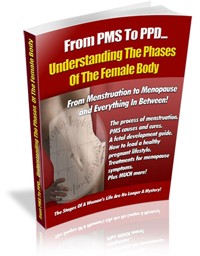 License Type: Private Label Rights
License Type: Private Label Rights  File Size: 492 KB
File Size: 492 KB File Type: ZIP
File Type: ZIP
 SKU: 27537
SKU: 27537  Shipping: Online Download
Shipping: Online Download
Ebook Sample Content Preview:
Chapter 4 - Motherhood
You’ve gone through the grueling hours of labor and delivery, and now it’s time to enjoy your newborn. While you may not get enough sleep and will feel like you’re running on empty, the sheer joy that a child brings is enough to make up for all of the sacrifices.
Taking Baby Home
While your body went through massive changes during pregnancy (and will continue to do so postpartum) your life will also change dramatically now that baby has arrived. Once you get home you’ll more than likely want to take a nap. The old adage, sleep when baby sleeps is a good one to follow. You and your partner may wish to introduce the little one to his or her new home and then tuck them in their new crib.
New fathers can help out by taking care of household duties, changing diapers and letting mom get some well-deserved sleep. You may even wish to take a nap together while baby sleeps. You probably haven’t had very much alone time these past few days, so take these relaxing moments for all they’re worth.
You should also expect visits from family and friends at this point in time. Everyone will be enthusiastic to see your baby, but be careful not to run yourself ragged. Be honest with family when you’re tired and need to rest rather than socialize.
While you’ll most likely feel overwhelmed, remember that there are always people to help you. Your partner, your family and friends are more than willing to lend a helping hand so you can have some time for yourself.
Becoming a "Mom"
It may be a bit strange to take on this new role as “mother,” considering the only mother in your life up until now has been your own. Becoming a mom isn’t that difficult in the sense that you must suddenly begin acting like one. For most women, it will be instinctual. You will naturally worry about the wellbeing of your child and do your best for them all the time. However, as your child grows, the skills necessary to cope with your child’s behavior are learned. Just as with every other role in life or even jobs, the finer details are learned, not inherited.
A lot of new moms and even many not so new moms feel as though they lose a bit of themselves or a bit of their personal identity upon becoming a mother.
While it may feel this way, it certainly doesn’t hav e to be this way.
Letting a child take over your entire life is not very healthy. You still need things
for yourself as well like your career, love life and hobbies. While you may not be able to devote as much time to these things as before, you can still keep your “old” self alive and kicking.
Postpartum Depression
While many women experience what is called the “baby blues” or a period of about a week after baby is born where she is a bit depressed, postpartum depression is an entirely different story. Between 10-15% of women experience postpartum depression to some degree and while the condition is treatable, it’s very serious.
Postpartum depression can be defined as the onset of serious mood changes anywhere from one month to one year after baby is born. It is much more serious than the baby blues and must be treated by a doctor with appropriate therapy and medication.
Causes
Postpartum depression is believed to be caused by the radical shifting of hormones after childbirth. While some women only experience mild mood swings, others are thrown into the depths of depression.
Symptoms
PPD can express itself in several different ways. While the symptoms are very much like those of regular depression, there are a few key differences. Common symptoms of postpartum depression include:
Lethargy.
Hopelessness.
Lack of appetite.
Inability to sleep.
Restlessness.
Continuous crying.
Mood swings.
Lack of interest in once enjoyed activities.
Lack of interest in baby.
Confusion.
Fear of harming oneself.
Fear of harming baby.
Likely Candidates
As with all mood disorders and instances of depression, a family history of the disease automatically predisposes you to becoming diagnosed. You are also more likely to have postpartum depression if you have suffered from depression prior to pregnancy, or suffered from postpartum depression with a prior pregnancy. An unhappy or stressed marriage can also contribute to a woman’s likelihood of developing the disorder. Women without close relatives or friends to discuss their feelings with are also more likely to become depressed.
Many women feel ashamed of their feelings and disinterest in their baby when suffering from postpartum depression, so do not share them with their spouse or loved ones. While it is understandable why a woman would feel this way, there is no need to be ashamed or feel guilty. PPD is no ones fault (except for maybe hormones). If you think you may be suffering from PPD, it is imperative you notify someone so you can seek proper treatment. PPD left untreated can escalate into a more serious condition or leave you unhappy for a long time.
Treatments
Upon seeing your doctor, he or she will evaluate you to rule out any sort of physiological problem first. Next, you’ll be evaluated and then diagnosed with PPD. Once diagnosed, you can receive proper treatment. The most common forms of treatment for PPD include a combination of medication and therapy. Antidepressants can help restore the chemical balance to your brain, therefore lifting your mood and allowing you to enjoy life once again. The therapy portion provides women with the proper coping skills.
Many women also enroll in a support group to help get through this trying time with women that are going through the same or similar thing. It is also very important for women to continue their treatment plan until their doctor says otherwise. To stop medication suddenly is dangerous and increases the likelihood of a relapse.
- File Size:492 KB
- License: Private Label Rights
- Category:Ebooks
- Tags:2009 Ebooks Private Label Rights








